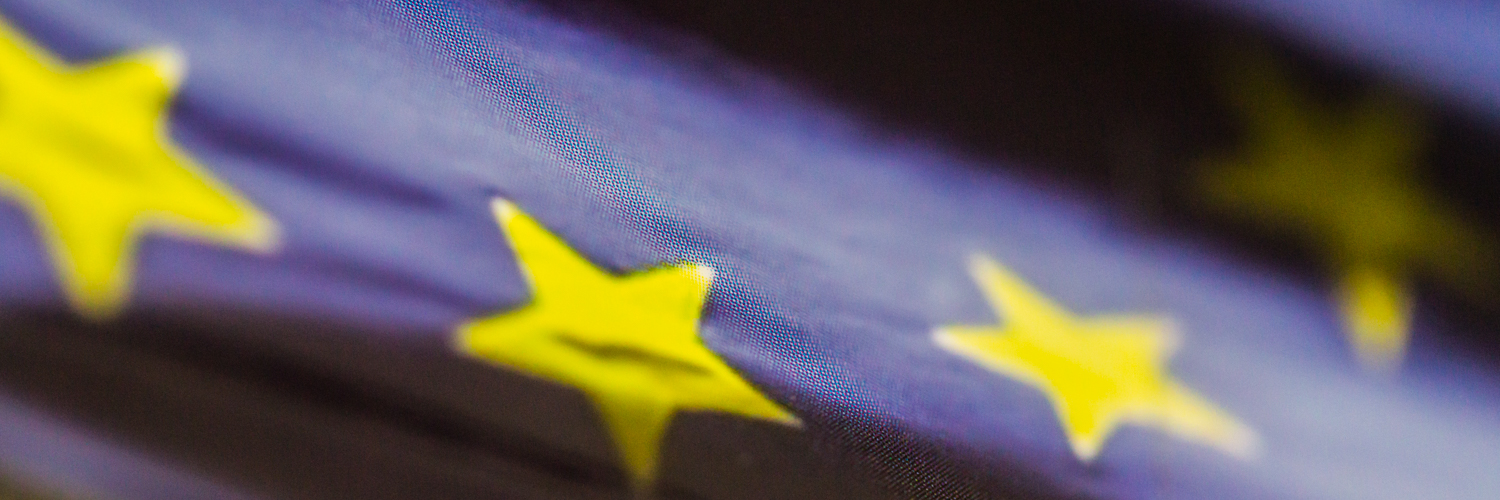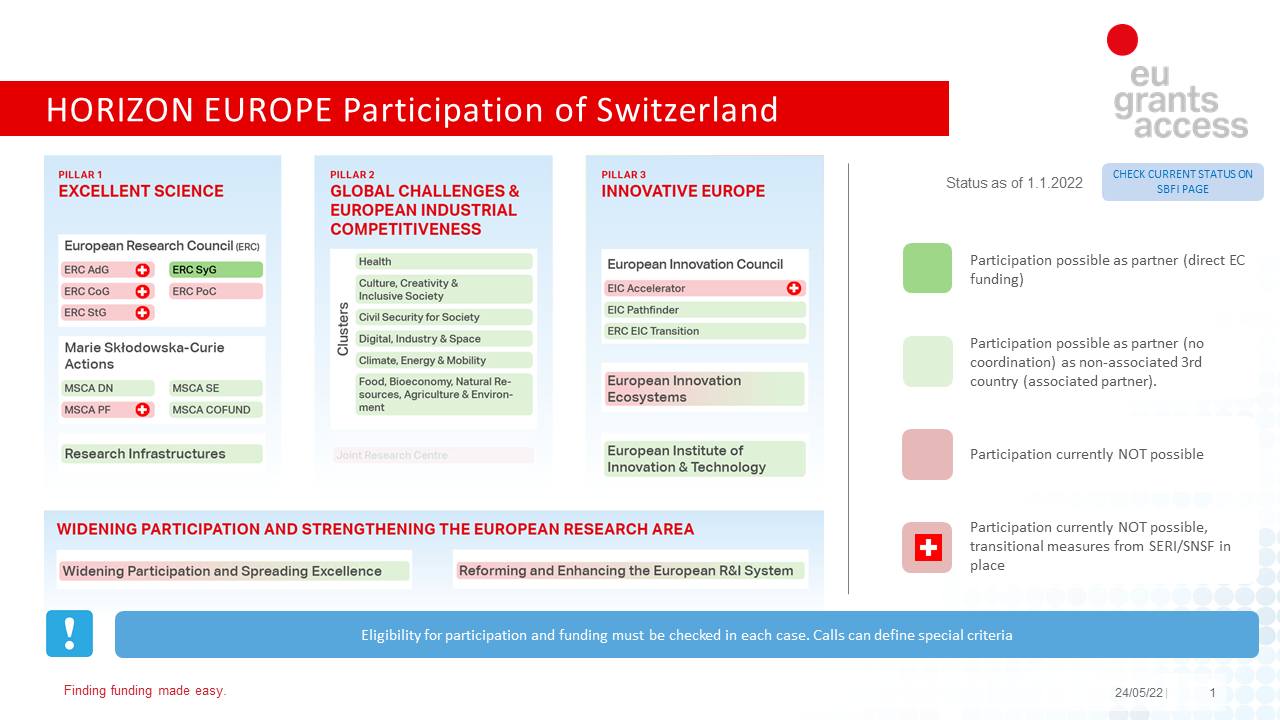Horizon Europe

- Although Switzerland is not yet associated to Horizon Europe, a large part of the programme is open to Swiss institutions. Our researchers can participate in most collaborative projects as associated partners, lead work-packages and take an active role in management. The first Horizon Europe projects in this constellation have already been approved by the European Commission and the budget for the Swiss partner is covered by the State Secretariat for Education, Research and Innovation.
- Switzerland's status as a non-associated third country applies to Horizon Europe, the Euratom programme and the Digital Europe Programme.
- The European Commission (EC) is currently unable to consider steps for exploratory talks and negotiations on an association of Switzerland to the ninth Framework Programme for Research and Innovation. Therefore it is currently uncertain when Switzerland will be able to participate again as an associated country to Horizon Europe.
- A change of Switzerland's status remains possible at any time, and Switzerland's association to Horizon Europe and the associated programmes and initiatives as soon as possible remains the Federal Council's declared goal.
- For the time being, researchers from Switzerland have to submit their project proposals as participants from a non-associated third country until further notice. This means that project participants in Switzerland can participate in the majority of collaborative projects. Successful project proposals for all collaborative projects will be funded by SERI.
- Currently, mono-beneficiary projects calls such as the ERC grants, MSCA Postdoctoral Fellowships and the EIC Accelerator cannot be implemented in a non-associated third country, such as Switzerland. The Federal Council decided to provide additional transitional measures for the time being.
- Additional funding was granted by the Federal Council in the areas of high-performance computing and quantum research.
- Project funding obtained by researchers and innovators within the framework of Horizon Europe from an institution in an EU member state or an associated country can be transferred to a Swiss Host Institution and financed by SERI in the event of a transfer, as long as Switzerland is not an associated third country. Individual projects are exempt from this.
- Transitional measures were initiated as a substitute for participation in the calls for proposals for the ERC Starting, Consolidator and Advanced Grants and the MSCA Postdoctoral Fellowships, which habe been implemented by the Swiss National Science Foundation (SNSF).
- Funding for researchers based in Switzerland (including companies and SMEs) for participating in collaborative projects as an associated partner from a non-associated third country is provided by the Swiss government for all calls of Horizon Europe and the Euratom programme. The State Secretariat for Education, Research and Innovation (SERI) has published external pagefinancial guarantees for the programme years 2024 and 2025call_made on its website.
- Please note that the minimum eligibility criteria (excluding Switzerland) must be met for each proposal.
- Contact us if you are planning to participate in a current Horizon Europe Call.
- You can find the most recent information on the current status of Switzerland within Horizon Europe and relevant materials for researchers on the constantly updated external pageSERI websitecall_made.
- On 23 January 2022, swissuniversities, scienceindustries and the ETH Board published a joint resolution (in external pageGermancall_made or external pageFrenchcall_made). The external pageStick to Sciencecall_made initiative was launched by the European research community to promote open and barrier-free collaboration between European research and innovation (R&I) actors, who all share the same values.

Horizon Europe is the EU’s key funding programme for research and innovation with a budget of €95.5 billion until 2027. It will be the most ambitious research and innovation funding programme in the history of European Union. Excellence in science will continue to be funded and advanced by the European Research Council and the Marie Skłodowska-Curie grants. Knowledge-based innovations and support by the European Innovation Council will drive forward the EU’s industrial competitiveness and innovative performance. The overall aim of the new research programme is to expand the EU’s science and technology base by investing more in highly qualified workers and cutting-edge research. Horizon Europe will help in achieving the EU’s strategic priorities, such as implementing the Paris Climate Agreement and addressing other global challenges. The Horizon Europe programme is also guided by the United Nation’s Sustainable Development Goals (SDGs).
- European Innovation Council: Support for innovations with potential breakthrough and disruptive nature with scale-up potential that may be too risky for private investors. This is 70% of the budget earmarked for SMEs.
- Missions: Sets of measures to achieve bold, inspirational and measurable goals within a set timeframe. There are 5 main missions as part of Horizon Europe.
- Open science policy: Mandatory open access to publications and open science principles are applied throughout the programme.
- New approach to partnerships: Objective-driven and more ambitious partnerships with industry in support of EU policy objectives
- Gender Action/Equality Plan (GAP/GEP): Applying public bodies, research organisations and higher education institutions must have a GEP or equivalent strategy in place to be eligible for funding.
